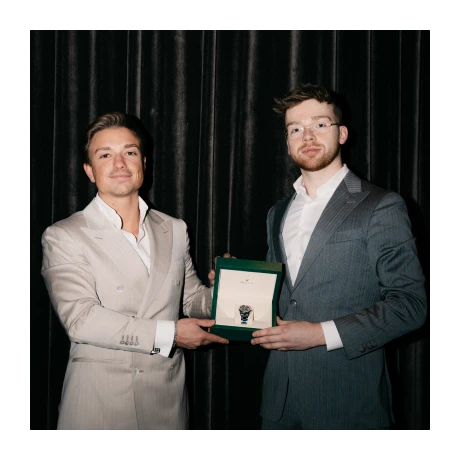Introduction
The path from a beginner to an expert in sales is an exciting one with many twists and challenges. But how long does it take a salesperson to reach this status and what factors play a role? In this article, we dive deeper into the different stages a salesperson typically goes through on the way to expertise.
Factors determining the Speed of Progress
Before delving deeper into the different stages a salesperson typically goes through on the way to expertise, it is essential to understand the factors that determine the speed of this progress. These factors include:
The quality of the mentor: A mentor is someone with experience in sales who offers guidance and insights to a novice salesperson. The quality of this mentor can have a significant impact on the salesperson's growth. A good mentor not only shares knowledge about sales strategies and techniques, but also acts as a source of inspiration and motivation. By learning from someone with proven success in the industry, a salesperson can develop skills faster and avoid pitfalls.
Sales cycle: The nature of the sales process can vary greatly depending on the industry and the type of products or services being sold. A shorter sales cycle, where deals are closed quickly, can lead to faster learning experiences for salespeople. In such environments, salespeople have the opportunity to have more interactions with customers and receive feedback quickly, which can lead to faster growth.
Training: Training is essential for developing sales techniques and product knowledge. Formal training, such as workshops and courses, provides salespeople with structured guidelines and best practices. Additionally, self-directed training, such as reading books and viewing online resources, can help improve specific skills. A combination of formal and informal training is often most effective.
Willingness to receive feedback: Effective feedback is a valuable source of growth for salespeople. The ability to accept constructive criticism and put these insights into practice is crucial for improvement. Salespeople who are open to feedback and can adapt quickly can sharpen their skills and improve their results.
Integrity: Integrity is a fundamental trait of a successful salesperson. A salesperson with integrity builds trust with customers, which can lead to long-term relationships and repeat sales. Maintaining high ethical standards in sales practices is not only important for long-term success, but can also affect the speed of growth, as customers are more likely to buy from a salesperson they trust.
Taking to the field: The old saying "learning by doing" certainly applies to selling. The faster a salesperson puts his skills into practice through actual interactions with customers, the faster he can learn and grow. Practical experience allows salespeople to experiment with different approaches and receive feedback from real customers, which accelerates their proficiency in selling.
With these factors in mind, let us now look at the different stages a salesperson can go through on their journey from novice to expert in the world of sales.
Phase 1: The initial phase (Months 1-3)
The first three months in the world of sales can be both exciting and challenging. Sales people often still have limited knowledge about the product or service they are offering, but they can have strong sales skills. They understand the benefits of their product and how it can solve problems for potential customers.
This period is also a crucial evaluation moment. It soon becomes clear whether a salesperson is right for the job or not. Talent and potential are obvious, but the ability to harness them and learn quickly is invaluable.
Phase 2: The transfer of knowledge (Months 4-6)
After about three months, salespeople start going deeper into the specifications of the product. They want to share their extensive knowledge and experience with potential customers. However, by sharing too many technical details, they can achieve the opposite effect: customers get confused and cannot make a decision.
It's all about balance. Sales people need to learn that they have their knowledge like a toolbox and should use it only when really necessary. Customers want clarity and understandable information. They want to know how a product can help them, not be overwhelmed by technical data.
Phase 3: Selling with confidence (after month 6)
As time passes, the salesperson begins to realise that they have this in-depth knowledge to fall back on, but that they should only use it sparingly. Confidence grows because they know they have the answers, but they refocus on the core: the benefits of the product and how it can help the customer.
It's all about selling with confidence and putting the ego aside. It is a phase where experience and self-assurance come together. They have learnt that it is not about overloading customers with information, but about conveying the right information at the right time.
Conclusion
The road from a beginner to an expert in sales is filled with challenges, discoveries and growth. It is a journey influenced by many factors, but ultimately revolves around dedication, determination and a willingness to learn from every interaction. If you are a salesperson reading this blog, you can rest assured that you are on the right track as you actively work on the pillars of success in sales.







